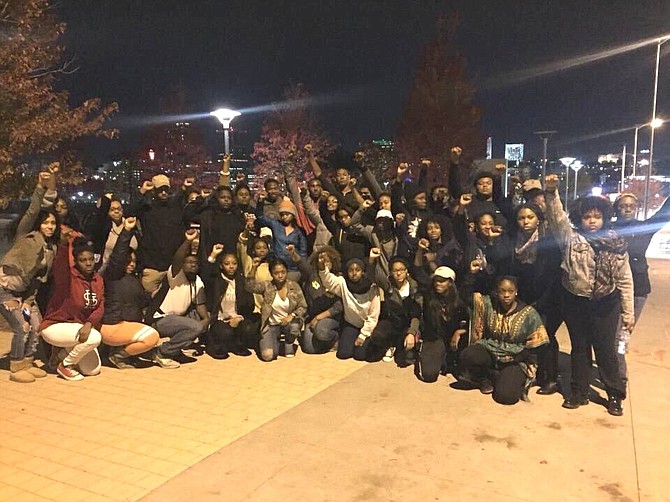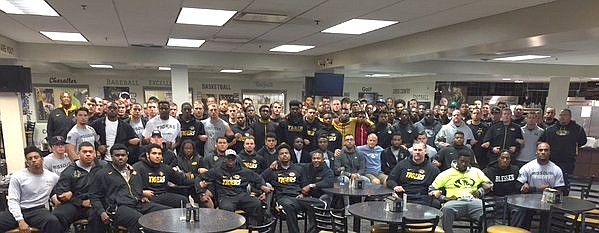Chicago Mizzou Alums React to on Campus Student Protests
University of Missouri (U of M) alum Jeffery Beckham, is following the events at his alma mater as closely as he can. He is not surprised by the protests over racial tensions and other issues there.
“I see and hear what's happening and it's upsetting,” Beckham, a 2003 graduate says. “When I got to Mizzou I had a great experience but it wasn't without dealing with some of the same foolishness.”
Beckham, the co-founder of “Black Box Creative,” a website design company, says he spoke with the mother of a current U of M student.
“She said her daughter’s fine but definitely feels the tension on campus. It's really disheartening to see that the students are dealing with what appears to be even more targeted hate and ignorance than we had to deal with 10-15 years ago.”
The campus protests, which are centered around African American graduate student Jonathan Butler, who has been on a hunger strike since last week, were led by a group called the “Concerned Student 1950,” which refers to the year the University of Missouri admitted its first black student.
Butler was later joined by members of the school’s football team. Sixty of the 124 players on U of M’s roster are African-American, according to the Columbia Missourian. If the strike would have continued into the school’s next game, which is scheduled to take place in Kansas City, the strike would have cost the school 1 million.
The demands by the Concerned Student 1950 were posted on the Columbia Daily Tribune website. The demands included the removal of University of Missouri System President Tim Wolfe, a proposed plan to deal racial tensions on campus, along with increasing the number of Black faculty and staff member by ten percent within the next three years.
Butler, along with the football team, and other students, wanted to force the ousting of Wolfe following several racially charged incidents on campus which included racial slurs hurled at Missouri Students Association President Payton Head, a South Side Chicago native, and Swastikas drawn in feces on a campus dormitory.
Wolfe, along with chancellor R. Bowen Loftin, stepped down this week after the protest garnered national attention.
Wolfe released a statement to the media this week:
“I am resigning as president of the University Missouri system. My motivation in making this decision comes from a love of Columbia where I grew up and the state of Missouri. I thought and prayed over this decision. It is the right thing to do … The frustration and anger I see is real, and I don’t doubt it for a second.”
U of M’s department of athletics also released a statement:
"The primary concern of our student-athletes, coaches and staff has been centered on the health of Jonathan Butler and working with campus leaders to find a resolution that would save a life. We are hopeful we can begin a process of healing and understanding on our campus."
Local U of M alums applauded the students for standing up for what they believed in.
Adriane Hanes, a native of Chicago’s Beverly neighborhood and a 2005 U of M graduate, said she saw racial tensions at her alma mater during the fall 2001 semester towards Arab people due to the September 2001 terrorists attacks. She believes that the current students have the university headed in the right direction.
“I think this is one step in the right direction. The student association has drafted a plan of action with several things to promote equality for students, faculty and staff of the university.”
Erika Swilley, Community Relations Manager for the Golden State Warriors, echoed Hanes’ sentiments.
“I really believe these students have set the tone and that the University will start taking the necessary steps to ensure an environment where all students can excel,”Swilley, a 2002 graduate said. ”Unfortunately there will always be racist people but at least now it is pretty clear that the university will not tolerate the actions of these individuals.”
Latest Stories
- Cook County Commissioner Donna Miller Launches Congressional Campaign
- Say “Om” with Friends of the Forest Preserves
- Don’t Forget the Least In Our Midst
- Community’s Voice Shapes Future Leadership
- Chicago Board of Education Approves Resolution Launching Healthy Green Schools Pilot Program
Latest Podcast
STARR Community Services International, Inc.



